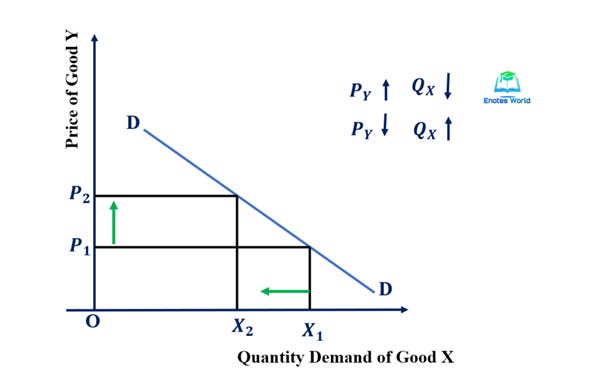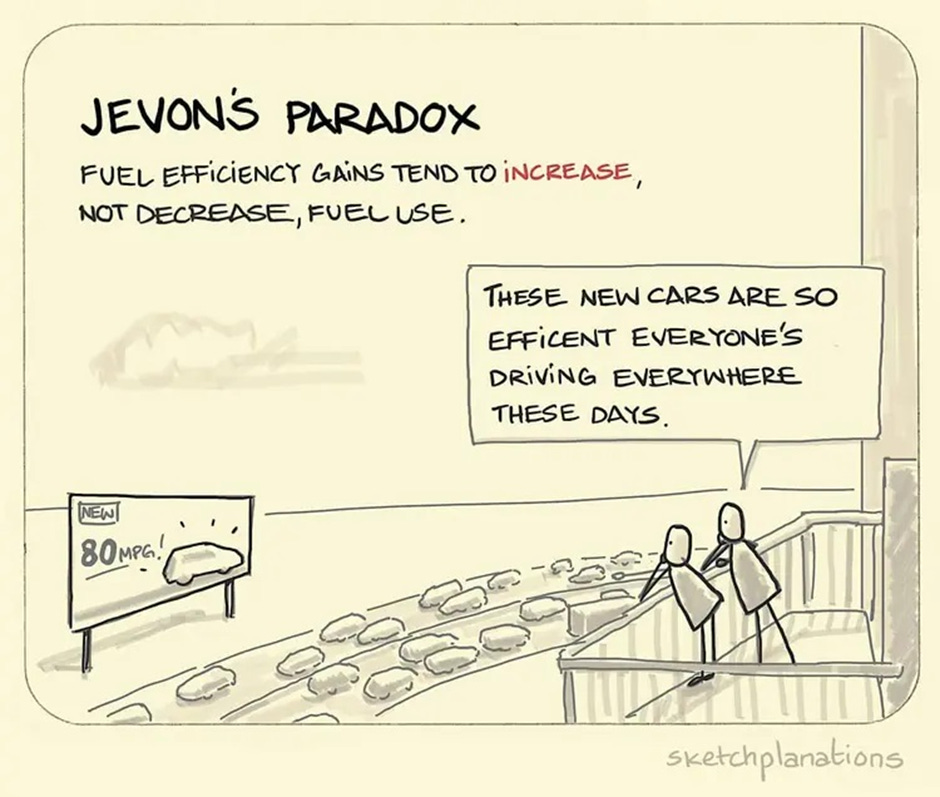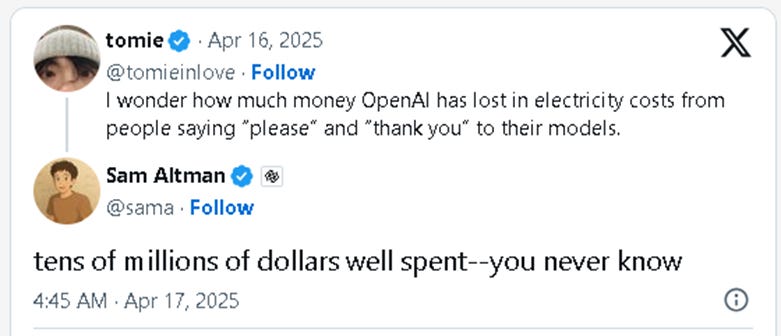The Jevons Paradox is REAL!
Given the Tech space today, its evolution thus far & how it may turn out going ahead, here's how the perspective of an environmentalist fits in…
Background:
I was chatting with a cofounder in the Sustainability space about Tech, AI & its advancements, how they have affected our lives deeply today in a positive way.
What came by was a storm of words against Tech… Well, not so much about Tech in itself, but the aftermath of it on the environment…
Whenever one talks of AI & the chief purpose it predominantly tends to serve, one obviously quotes “EFFICIENCY” / “PRODUCTIVITY” as the metric affected positively. It is of course true that AI is playing a significant part in each of our lives, making it easy to get around tasks across both our professional & personal lives. AI as a tech area has eaten into many jobs across domains, across hierarchy just as depicted in the previous article [The Misery Index] & continues to.
But there is also another observation that the need / demand for these new technologies could drive usage up significantly with the [RATE OF ADOPTION] which is to show the number of people hooked on to the Tech at any given instance rising exponentially. Talk of the latest advancements & fresh rollouts over ChatGPT versions or the trend around generating Ghibli images, the advent of AI is well & truly potent & omnipresent. When that has managed to put many people off their lanes, that undeniably has led to an increased demand in some other products like say, online storage, computing power, the need for higher & more sophisticated internet speed & not to mention security.
This phenomenon could draw a parallel to a classic concept right out the economics handbook, the CROSS-PRICE ELASTICITY where the price of one commodity could affect the demand / consumption of another commodity (refer graph above). Although its hardly price that’s driving demand here, the advent of one new tech product (AI as for our example here) has driven up the demand for tech / products on what could be considered another area altogether.
Definition:
Jevons paradox is the phenomenon where an increase in efficiency on one hand leads to a value addition alright but drives up consumption so high offsetting the whole purpose of the solution itself.
This often is the result of the increased efficiency reducing the cost of usage improving the feasibility, making it more accessible for the masses leading to shoring up of demand potentially compromising the whole purpose of the efficiency in the first place.
Some common examples away from AI that resonate with everyone:
As the Steam Engine got more efficient it led to a higher rate of adoption by all the railways pushing up production significantly & intern triggered an increase in the usage / demand for coal commissioning more mining initiatives & imports / exports as applicable
Fuel efficient vehicles bump the demand so high leading to an exorbitant increase in fuel consumption compromising the whole purpose of efficiency
Washing machines make all the washing pretty easy only to learn that one’s increased the usage of the machine to an extent where the consumption of resources is now 2x of what it used to be when done manually
Here’s more proof of how the Jevon’s paradox resonates with us in more recent times – the 2025s.
1) SATYA NADELLA ON DEEPSEEK
A recent interview by Satya Nadella seems to be doing the rounds. In case you missed it here’s the link:
The whole stub of the article is directed at how the demand / consumption rates of some products may show a paradoxical turn towards improved adoption bucking the expected trend that it would rather wane out & die down.
An increase in efficiency may not really play out the way it is presented. For a good reason that every write-up that gets published in the press tends to take sides, advocating for (A) over (B). There are very few articles that take to debating thoroughly about say, two prominent choices, leaving the verdict out to the readers in the end.
2) SAM ALTMAN ON THE USER’S HABITS
In another instance Sam Altman of OpenAI explained how the politeness users tend to show towards AI does cost a bomb …
Its true that computing power comes at a cost & that could prove to be dearer than anyone can imagine. Although speaking of percentages that could still be the very tip of the iceberg when pitted against the money raised over multiple investment rounds for an org. like OpenAI over the years.
When one is on the subject of sustainability, making cities & living spaces more sustainable, feasible for living beings, should one really be advocating for the usage of AI / disruptive tech given where it all stands as of today?
Or does one give it some time & see how it all evolves?
May be as Tech evolves it will be able to factor all these things in, eventually.
Finally:
Q: Do you feel like you are caught in a storm when you have to choose between Tech & Environment?
A: Well, if you are, given the way things are today & the way they seem to be heading, perhaps Tech isn’t quite the ideal spot for you to be in.







